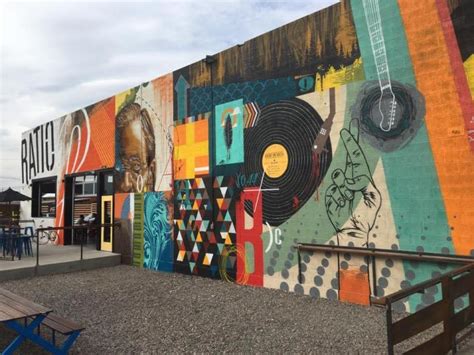Coachella, one of the world’s most iconic music and arts festivals, has become a bellwether for cultural trends and festival experiences. This article explores the multifaceted impact of Coachella tickets on cultural festival trends, providing an academic analysis of ticketing strategies and their broader implications. From the historical evolution of ticketing practices to the economic contributions of ticket sales, we delve into how pricing models and consumer behaviors shape the festival landscape. By examining the role of VIP packages, secondary markets, and technological innovations, we assess Coachella’s cultural significance and predict future trends in festival ticketing, offering insights into the dynamic interplay between culture, economics, and technology.
Explore this topic thoroughly with gamesfats.com
1. Historical Evolution of Coachella Tickets: Trace the development of ticketing strategies and pricing models for Coachella over the years.
Coachella, founded in 1999, has seen its ticketing practices and pricing models evolve considerably, mirroring trends within the wider music festival landscape. Initially, tickets were affordably priced at around $50 per day, aiming to draw in a broad audience and establish the festival as a cultural cornerstone. However, as Coachella’s popularity skyrocketed, ticket prices rose substantially due to escalating demand, expanded festival amenities, and the increasing magnitude of production.
By implementing tiered pricing and early bird discounts, Coachella encouraged early purchases and rewarded loyal attendees. This approach effectively managed cash flow and reduced financial risks inherent in large-scale events. Furthermore, the festival embraced dynamic pricing models, adjusting ticket prices based on demand. This strategy optimized revenue generation while providing valuable insights into market interest.
To cater to a more affluent clientele seeking premium experiences, Coachella later introduced VIP and exclusive ticketing options. These packages included perks such as exclusive viewing areas, gourmet food options, and luxury amenities, solidifying the festival’s reputation for high-end experiences. This demonstrates Coachella’s adaptability and understanding of market trends, establishing its leadership within the festival industry.
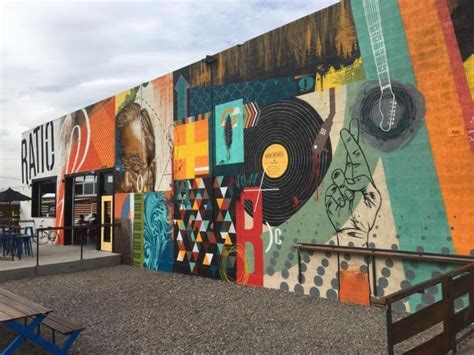
2. Economic Impact of Coachella Ticket Sales: Analyze how ticket sales contribute to local and regional economies, including job creation and revenue generation.
Coachella’s ticket sales play a vital role in the local and regional economies, fostering job growth and revenue generation throughout the Coachella Valley and surrounding areas. As a globally recognized music festival attracting hundreds of thousands of attendees annually, Coachella significantly impacts the hospitality and tourism industries. The influx of visitors creates a surge in demand for local hotels, restaurants, and businesses, resulting in increased hiring and economic activity.
The festival significantly contributes to the local economy by generating substantial tax revenue. This revenue is then reinvested by the government to improve community infrastructure and public services. Moreover, the influx of visitors creates numerous temporary employment opportunities, ranging from event staff and security personnel to vendors and transportation services. These opportunities provide a crucial source of income for many residents.
Coachella’s economic reach extends beyond the festival itself. Many attendees visit local attractions, boosting the Southern California economy. The festival’s global appeal attracts international visitors, further amplifying its economic impact. In conclusion, Coachella’s ticket sales stimulate regional economic growth, benefiting various industries and communities.

3. Ticket Pricing Trends and Consumer Behavior: Examine trends in ticket pricing and their effects on consumer purchasing behavior and festival attendance.
Coachella’s ticket pricing has mirrored shifts in consumer behavior, significantly impacting the festival’s attendance. Initially, affordable ticket prices were a key strategy to draw a large audience and cultivate a dedicated fan base. However, as Coachella’s popularity surged, ticket prices rose in response to increasing demand and the festival’s enhanced reputation.
Coachella’s tiered pricing strategy catered to a wide range of attendees, offering both budget-friendly options and premium experiences. Early bird pricing incentivized advance purchases, generating early revenue and providing insights into demand. This strategy fostered a sense of urgency among consumers, often resulting in quick sell-outs as fans secured their place at the festival.
Dynamic pricing models, which adjust prices based on demand fluctuations, further influenced consumer behavior. This approach incentivized early purchases and maximized revenue, as prices often increased closer to the event. However, rising ticket costs also led to discussions about accessibility and affordability, with some potential attendees feeling priced out of the experience.
Despite facing numerous obstacles, Coachella’s diverse lineup and distinctive festival atmosphere consistently attract a loyal audience. The festival’s success lies in its adeptness at balancing pricing strategies with consumer expectations, solidifying its position as an indispensable event. Coachella’s influence extends beyond its own ticket prices, impacting pricing trends throughout the industry and shaping consumer behavior within the festival landscape.

4. VIP and Exclusive Ticketing Options: Explore the role of VIP and exclusive ticket packages in shaping festival experiences and revenue streams.
Coachella’s VIP and exclusive ticketing options have transformed into a central part of the festival experience, catering to a high-end clientele with premium amenities and services. These packages unlock access to exclusive spaces, including VIP lounges, shaded seating, and prime viewing locations, ensuring a comfortable and stylish festival experience. The luxurious offerings extend beyond these perks, encompassing gourmet dining options, private restrooms, and concierge services, culminating in an elevated and unparalleled festival journey.
Coachella’s revenue streams have been significantly boosted by the introduction of VIP and exclusive ticket packages. These packages, offering premium experiences at a higher price point, target a market segment seeking added convenience and luxury. This strategy not only drives ticket sales but also attracts lucrative sponsorship and partnership opportunities. Brands are eager to align themselves with the exclusive aspects of the festival, further increasing Coachella’s financial success.
Premium ticketing options, such as VIP and exclusive packages, serve a dual purpose. They not only enhance the experience for those who purchase them, but also help regulate crowd density in general admission areas, benefiting all attendees. This strategic approach has been instrumental in solidifying Coachella’s reputation as a high-end cultural event, significantly impacting festival experiences and revenue models across the industry.

5. Secondary Market for Coachella Tickets: Investigate the influence of the secondary market and resale platforms on ticket availability and pricing.
The secondary market for Coachella tickets has become a major force shaping ticket availability and pricing, significantly altering the festival landscape. Because demand for tickets regularly outpaces supply, resale platforms offer a space for attendees to secure tickets after the initial sale, although often at inflated prices. This dynamic results in price swings that mirror market demand, with prices typically escalating as the festival nears and tickets become scarcer.
Resale platforms, such as StubHub and Viagogo, have made it easier to buy and sell tickets, benefiting those who couldn’t get them during the initial sale. However, these platforms often mark up ticket prices significantly, sometimes doubling or tripling the original cost. This raises concerns about whether tickets remain affordable and accessible to the average consumer.
The secondary market, while fostering ticket scalping – the practice of buying tickets to resell them at inflated prices – remains a vital component of the Coachella ticketing ecosystem. To deter scalping, Coachella has taken steps like wristband activation and strict ID checks to curb unauthorized sales. However, the secondary market’s influence on pricing strategies and consumer behavior persists despite these efforts.

6. Impact of Ticket Sales on Festival Programming: Assess how ticket sales data influences the selection of performers and the overall festival lineup.
Coachella’s festival programming is heavily influenced by ticket sales data. By analyzing sales trends, demographics, and audience preferences, organizers can craft a lineup that resonates with the widest audience, maximizing ticket demand. This data-driven approach ensures Coachella remains a top music and arts festival by attracting a diverse range of popular performers who appeal to a wide audience.
Festival organizers carefully consider audience preferences when selecting performers. Ticket sales and social media engagement reveal the popularity of specific genres and artists, guiding organizers toward bookings that will maximize both financial success and audience satisfaction. This approach also helps identify emerging trends, allowing Coachella to showcase both established headliners and rising stars, creating a diverse lineup that caters to a wide range of musical tastes.
Moreover, ticket sales data informs decisions about scheduling, stage allocations, and special events within the festival. By aligning programming with consumer interest, Coachella can optimize attendee experiences, encouraging repeat attendance and positive word-of-mouth. This alignment ensures that the festival remains dynamic and relevant, continually evolving to meet the expectations of its audience while setting trends in the global festival industry.
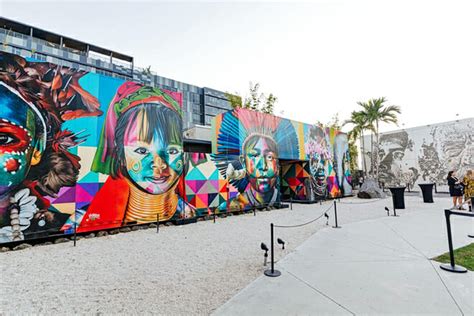
7. Socio-Demographic Factors Influencing Ticket Sales: Analyze the demographics of Coachella attendees and how they affect ticket sales and marketing strategies.
Coachella’s ticket sales and marketing strategies are heavily influenced by its attendees’ demographics. The festival draws a diverse crowd, primarily made up of millennials and Gen Z, with a significant number of affluent attendees. This demographic makeup guides Coachella’s pricing strategies, marketing campaigns, and overall experience, ensuring it resonates with its target audience.
To engage younger, trend-conscious audiences, the festival employs a targeted digital marketing strategy. This strategy leverages social media platforms and influencer partnerships to reach potential attendees. By capitalizing on the high engagement levels of these demographics, the festival effectively utilizes online promotions and viral content to generate interest.
The festival’s VIP and exclusive ticketing options attract affluent attendees, who in turn influence the inclusion of high-profile artists and premium amenities. This demand for luxury experiences motivates the festival to offer high-end services and exclusive access, further boosting ticket sales among this demographic.
Coachella’s global reach draws in international attendees, influencing marketing strategies that focus on the festival’s reputation as a leading cultural event. By understanding and catering to the diverse demographics of its audience, Coachella effectively tailors its offerings to create a captivating and relevant festival experience. This approach drives ticket sales and sustains Coachella’s position as a leading cultural phenomenon.
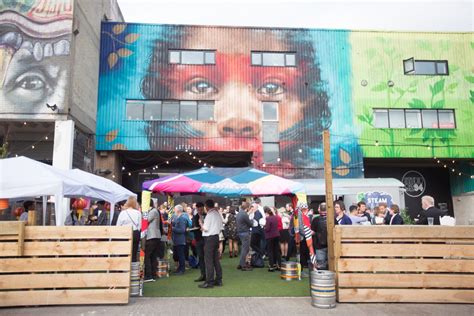
8. Technological Innovations in Ticketing: Evaluate the impact of digital ticketing and technological advancements on the festival experience and security.
Coachella’s festival experience has been significantly enhanced by technological advancements in ticketing, particularly in security. The adoption of digital ticketing has streamlined both ticket purchasing and entry. Attendees can now conveniently manage their tickets through mobile apps and digital wallets. This eliminates the need for physical tickets, mitigating the risk of loss or theft and simplifying the check-in process at the festival.
Digital ticketing platforms offer real-time updates and notifications, ensuring attendees are informed about schedule changes, special announcements, and logistical details. This seamless communication enhances the overall festival experience by minimizing confusion and keeping attendees in the loop.
In terms of security, technological advancements such as biometric scanning and RFID wristbands have been integrated to prevent unauthorized entry and counteract ticket fraud. These technologies ensure that only valid ticket holders gain access, enhancing the safety and efficiency of the event.
Additionally, data analytics derived from digital ticketing systems provide valuable insights into attendee behavior and preferences, allowing Coachella to refine its programming and operational strategies. Overall, technological innovations in ticketing have transformed the festival experience, improving convenience, security, and operational efficiency while setting a benchmark for future events.
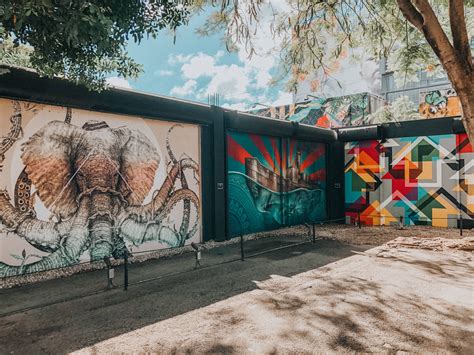
9. Cultural Significance of Coachella as a Case Study: Discuss Coachella’s role as a cultural phenomenon and its influence on other cultural festivals and events.
Coachella’s impact transcends its musical and artistic lineup, shaping the landscape of cultural festivals worldwide. From its beginnings, Coachella has pioneered trends in festival production, marketing, and programming, serving as a model for other events to emulate.
The festival’s eclectic lineup, featuring a mix of mainstream headliners and emerging artists, has redefined the music festival experience, encouraging other events to adopt similar diverse programming. Coachella’s focus on blending music with art installations and immersive experiences has inspired festivals worldwide to incorporate creative and multimedia elements, enhancing their cultural appeal.
Coachella’s marketing strategies, including its use of social media and influencer partnerships, have revolutionized how festivals engage with audiences, setting new standards for digital promotion and audience interaction. The festival’s VIP and exclusive ticketing options have also influenced the development of premium experiences at other events, catering to affluent attendees seeking luxury and exclusivity.
Furthermore, Coachella’s impact extends to fashion and lifestyle, with its distinctive style and trends often becoming a focal point of cultural discourse. The festival’s global appeal has fostered a cultural exchange, influencing both local and international festivals and contributing to the evolution of the festival industry as a whole.
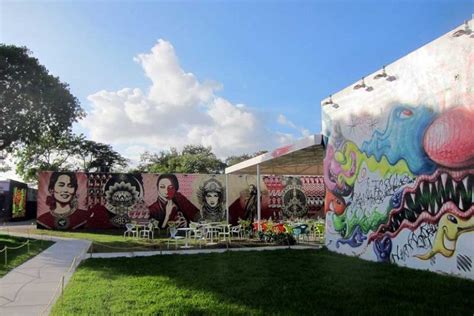
10. Future Trends in Festival Ticketing: Predict future developments in ticketing practices and their potential impact on cultural festivals.
Future developments in festival ticketing are likely to be shaped by advancements in technology, evolving consumer expectations, and broader industry trends. One key trend is the continued growth of digital and contactless ticketing, which enhances convenience and security while minimizing physical interactions. As technology evolves, we can expect the integration of more sophisticated features such as blockchain for secure ticket transactions and personalized, data-driven ticketing experiences.
Dynamic and tiered pricing models will likely become more refined, using predictive analytics to adjust prices in real-time based on demand and user behavior. This approach can optimize revenue while offering targeted pricing options for different segments of the audience.
Sustainability will also influence ticketing practices, with festivals adopting eco-friendly measures such as digital-only tickets to reduce paper waste. Additionally, we may see an increase in innovative access solutions, including augmented reality (AR) and virtual reality (VR) experiences, providing immersive ways to engage with festivals both on-site and remotely.
Overall, these trends will enhance the efficiency, accessibility, and personalization of festival ticketing, shaping the future of cultural events and their audience experiences.

Coachella’s evolution in ticketing practices highlights its significant impact on the festival industry. From early pricing strategies to advanced digital solutions, the festival’s approach to ticketing has shaped consumer behavior, influenced programming, and driven economic growth. As technological advancements and evolving trends continue to transform the landscape, Coachella will likely remain a pivotal force in defining future festival experiences.
gamesfats.com
